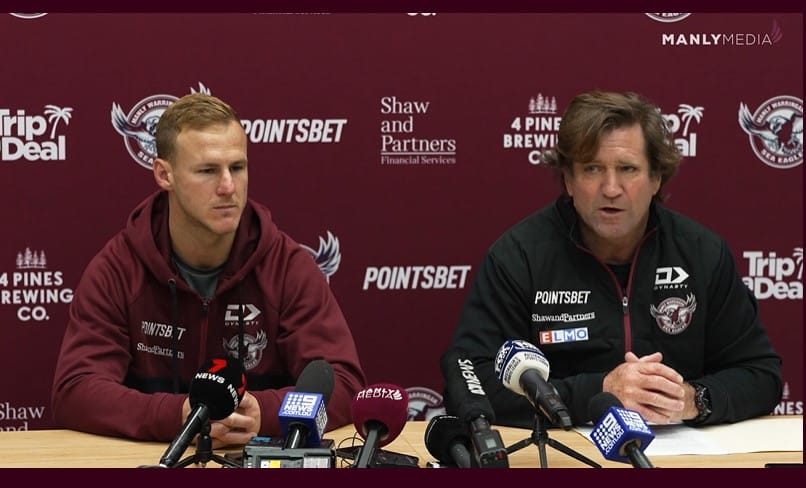
Jenan Taylor
26 July 2022
A National Rugby League club’s decision to include gay pride colours on its official jersey before consulting players was insensitive according to a Christian organisation.
The Centre for Public Christianity said the Manly Sea Eagles rugby club’s change to the jersey showed a lack of awareness of the complexities of its player’s lives.
Executive director Simon Smart said the club had handled the situation poorly even if it was initially done with good intention.
Mr Smart’s comments came shortly after Manly Sea Eagles coach Des Hasler held a press conference apologising about the incident saying the initiative had been a significant mistake.
Seven players are refusing to wear the gay pride jersey, citing a conflict with their religious and cultural beliefs.
They are also boycotting the National Rugby League’s next match.
The ensuing debacle has drawn comment even from Prime Minister Anthony Albanese who said it was good that sport was inclusive.
Mr Hasler told media that the rainbow colour application to the club’s traditional jersey was intended to reflect diversity and inclusion for all and support human rights for gender, race, culture, ability, LGBTA movements.
He apologised to those communities, the Australian Rugby League and to all the players for the club’s actions, but confirmed that the jersey would still be worn at the match.
Mr Smart said that if Manly had had a consultative process, perhaps there may have been a way forward that would have satisfied both groups.
Read more: Cost, sexuality issues see some Australian bishops shun Lambeth summit
He said given that in the past the rugby league had not been a welcoming environment for gay people, a consultative process might have been better viewed.
“It may have been seen as an attempt to make people, irrespective of sexuality, race or gender, feel more welcomed in the game,” Mr Smart said.
But it was a problem that some things were reduced to binary opposites and slogans because the situation was more nuanced than a case of players not wanting to wear a jumper, he said.
Rather, it was reflective of the fragmented culture we were in living in.
“We’re trying to inhabit different stories and then we’re quite atomised and clashing. This sort of thing ends up being a very simplistic test of ‘are you a good guy, or not’. That’s a bit problematic, and a textbook example of the challenge of living well in a pluralistic culture,” Mr Smart said.
The Pacific Islander background of the players who were boycotting also meant that they might hold more conservative cultural and religious views.
That raised difficult questions as to whether there was room for people to have those views, and as to whether or not they were welcome, he said.
“It’s an example of where we need to be able to find ways to exist well together, when we will have quite serious differences of worldviews, including of religious faith,” Mr Smart said.
He said the club’s gesture had put half of the team in a very difficult position, making the players look bad and making things difficult for them and their families, as well.
“But equally, there’ll be gay people who will feel really hurt by this as well. So, I wish the club had taken a bit more time to consult, and had maybe found a way to say they were welcoming of all people. But do that in such a way that it makes space for the complexity of views on this,” Mr Smart said.
For more faith news, follow The Melbourne Anglican on Facebook, Twitter, or subscribe to our weekly emails.






